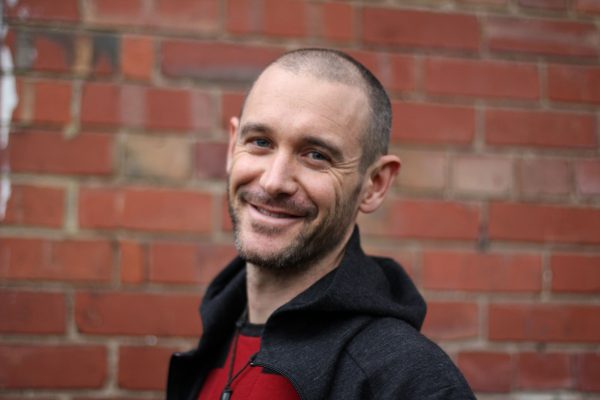The haemorrhaging knowledge economy
KiwiAir: Congratulations, Captain Kirk. After searching through 65 top applicants from around the globe, we have decided to appoint you as a senior pilot.
Capt. Kirk: Well thank you, gracious sirs. I’m delighted to get the job and look forward to starting flying with you.
KiwiAir: Ah, yes…flying with us. There are a few preliminaries before that commences. We will, of course, pay you and provide you with an office, hangar space, ground crew and the usual facilities. But you will need to raise the money for an aircraft, aircrew, flight attendants, fuel, on-board meals, etc. yourself. And you will be expected to choose several new and exciting destinations to fly to with your new aircraft. We are giving you an absolutely wonderful opportunity here! Your success will be judged upon how many passengers you carry and how much money you generate for the airline. And there will be a certain amount of teaching and mentoring required as well. Once you get the money, well be happy to administer the payments for your outgoings, though you should factor in an extra amount for admin and services—water, power, telephone, etc. An extra 25 per cent should cover that.
That KiwiAir—or any other airline—should operate in such a way seems improbable. It is also hard to imagine specialists in the public health system, army majors, roading engineers, senior high-school teachers or social-welfare staff raising the money to do whatever they are employed to do. Yet there is an important realm of public endeavour where precisely this is the norm—government science.
Bright young people are exhorted to enter science. A BSc takes three years, an honours degree another year or two, then a PhD a further three years and sometimes more. But in today’s very competitive scientific world, you’re dreaming if you think a PhD will get you a job. You need experience as a postdoc in a couple of high-pressure overseas labs. Once you have your name on half a dozen good scientific papers after working 12 hours a day (for pretty average wages) for four years—well, you could be getting close to securing a lecturing job at an average New Zealand university. After 10 or 11 years of training you finally have a real job. You’ll get paid about the same as a beginning policeman, have to give 70 lectures a year, run dozens of lab classes and supervise from three to six research students, serve on a few university committees—and do research.
Research is held up to science students as a holy grail, the pinnacle of human endeavour. As an academic, you find promotion is largely based on research success. Teaching is your first priority—try not giving a few lectures and saying you were busy with research and see how that goes down—but research is what really matters. You win jobs based on your research record alone.
However, although research is generally expensive to conduct and central to your activities, you will get little or no money for it from the university. Instead, you will be expected to raise research funds yourself by applying to various granting agencies. The money is for technical staff and postdoc salaries, for supplies, for equipment, for attending conferences, for paying to have papers published in scientific journals and for university overheads. Indeed, when I taught in university 10 years ago, even the money to pay for research by enrolled masters and PhD students came largely from outside research grants—hardly any came from the university, and I doubt that much has changed.
How much money is needed? Salaries for one technician and one postdoc, supplies for them and three students plus a modest item of specialised equipment would easily run to $150,000 a year in my old field, cancer research—and this is a small research group. Some say you need $250,000 a year to employ and support a serious researcher.
About 80 per cent of applications for research funds are rejected because there is never even close to sufficient money to pay for the projects that are considered worthwhile. Applications themselves are a lot of work. A big one could easily consume all your non-teaching time for a month or two and run to 10,000 words. Most years, you will have to write several, some smaller than others, because most will be rejected. It’s very time-consuming and discouraging. Panels of scientists have to assess all these applications and periodically visit and interview candidates, all of which entails a vast amount of extra work for more established scientists.
Your keen young scientist is suddenly no longer an experimentalist: he is a beggar—admittedly an upmarket one but a beggar nonetheless—a shuffler of forms and a supervisor of the efforts of others. I remember years ago reading that the work involved in making and reviewing grant applications each year in the US was estimated to be equivalent to the entire scientific effort of Australia. And most of this effort is wasted in that it is expended on rejected applications.
What subject do you research? To have any chance of getting funding the subject of your research has to be extraordinarily important, particularly relevant to the people of New Zealand, something that is going to bring enormous benefits to much of the population, and yet is completely novel. It’s also helpful if you can convince the holders of the purse that you are uniquely qualified to realise this vision. But even if you manage these rare feats, success is not assured. Science—and governments—have fads and enthusiasms for particular research areas that change over time—sometimes abruptly—and even if you are the world’s leading authority on some subject that is now seen as passé, you’ll be out of luck.
Still, it could be worse. A university lecturer continues to get his salary even if his research funding dries up. As Jeff Tallon points out in his Viewpoint, those in the Crown Research Institutes (CRIs) are not so fortunate. Their grants also pay their salaries—no grant, no salary, no job.
Because there is a considerable element of chance in getting funding, sooner or later you are bound to miss out, even if you are very well versed in “grantsmanship”. Experienced scientists from the CRIs will often be able to secure jobs with overseas institutions (which find it hard to believe that we would cast off such people), but that is a substantial loss to New Zealand, and one that under the CRI funding system has been pretty much an annual haemorrhage.
Why do we have trouble attracting people into science? Those smart enough to do it are also smart enough to see that they are better off in law or commerce or medicine, where they can earn much greater sums without the hassles. Scientists are probably the most highly trained of any group of professionals, yet salaries for a lecturer start at $50,000 and many/most will never earn much more than $75,000 p a.
Of course, having spent all those years in training, your student loan will likely be intimidating. We also live at a time when scientists are viewed with suspicion by much of the public. Who wants to be a target for anti-GM campaigners or for animal liberationists?
Steve Pawson, who is a contributor to this issue of New Zealand Geographic, is a PhD student at Canterbury University. He aspires to become a professional entomologist and is already the treasurer of the NZ Entomological Society. He suspects that research funding in his area of interest, which is not especially fashionable, will be next to impossible to get, so is working on setting up small enterprises (www.epenz.co.nz) which will earn him sufficient money to support his science habit. Enterprising and commendable this may be, but if young scientists have to resort to such measures, it bodes ill for the knowledge economy.















